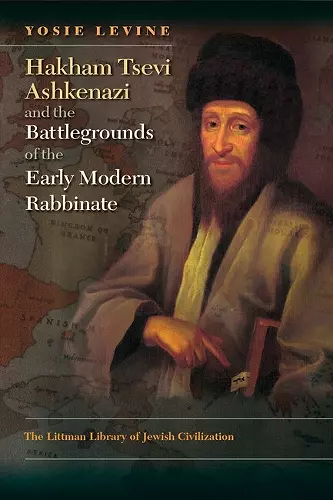Hakham Tsevi Ashkenazi and the Battlegrounds of the Early Modern Rabbinate
Format:Hardback
Publisher:Liverpool University Press
Published:19th Nov '24
£39.00
Supplier delay - available to order, but may take longer than usual.

With the social and cultural upheavals of early modern Europe, rabbis were constantly struggling to preserve Jewish tradition. Hakham Tsevi Ashkenazi (1658—1718), the independent-minded chief rabbi of Amsterdam, came to be regarded as one of the leading halakhic authorities of this tumultuous era. The battles he waged changed Jewish practice in his lifetime and came to define rabbinic norms in the decades that followed, with relevance to the present day.
The challenges for a leading rabbi in a time of ferment were many. With advances in communication and the early stirrings of political emancipation in Jewish and secular society, how could one establish halakhic authority? How were rabbis to navigate the new reality in which mystical texts—once the exclusive province of the elite—became accessible to the masses? As geographical boundaries shifted and cultural barriers crumbled, how could one build a bridge between the worlds of Ashkenaz and Sepharad? How were the keepers of tradition meant to respond to the religious laxity that accompanied acculturation? And how could the religious establishment engage sectarians in general, and crypto-Sabbatians in particular?
Hakham Tsevi didn’t always win the battles he fought, but his arguments have endured. Products of his fierce independence, some of his responsa have attained near-canonical status., Today’s halakhic discussions of such contemporary issues as brain death and artificial intelligence often begin with the words he committed to posterity. Hundreds of years after his death, Hakham Tsevi and his work remain at the frontier of halakhic discourse.
ISBN: 9781835536414
Dimensions: unknown
Weight: unknown
296 pages